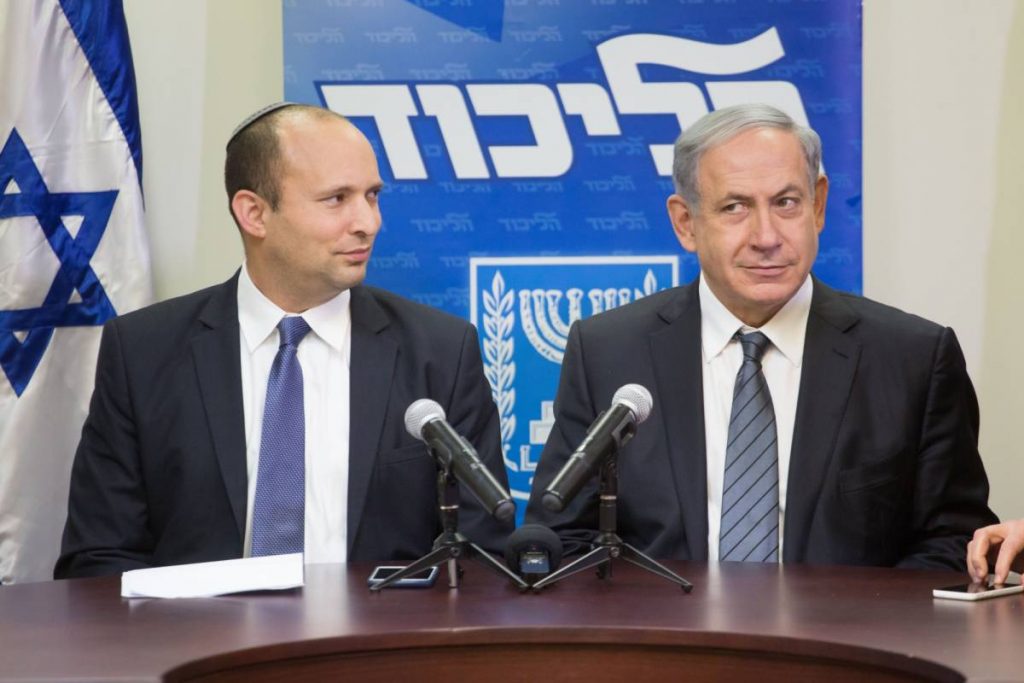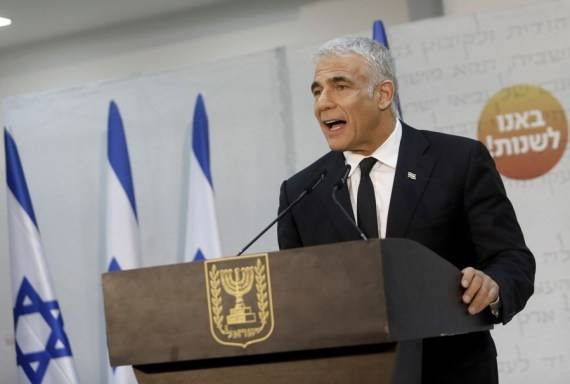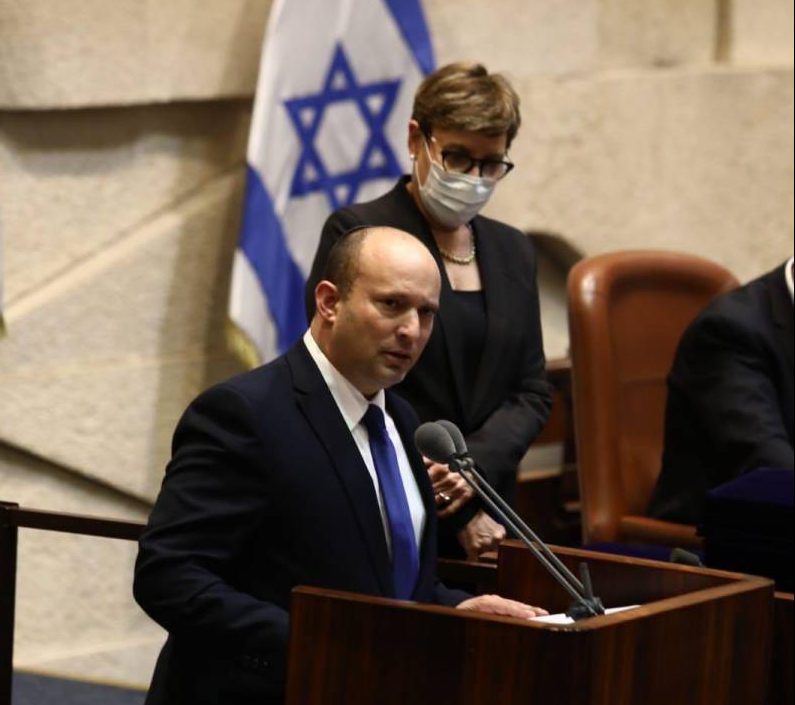Naftali Bennett, the head of a small ultranationalist party, was sworn in as prime minister after a narrow 60-59 vote in parliament, reports Asian Lite News
The UAE on Monday congratulated Israel’s new prime minister Naftali Bennett. In the official tweet, the UAE also congratulated the alternate prime minister and foreign minister Yair Lapid on the formation of a new Israeli government.
“We look forward to working together to advance regional peace, strengthen tolerance and coexistence and embark upon a new era of cooperation in technology, trade, and investment,” a tweet from the Ministry of Foreign Affairs and International Cooperation read.
Israel’s parliament on Sunday approved a new coalition government that sent Prime Minister Benjamin Netanyahu into the opposition after a record 12 years in office and a political crisis that sparked four elections in two years.
Naftali Bennett, the head of a small ultranationalist party, was sworn in as prime minister after a narrow 60-59 vote in parliament. But if he wants to keep the job, he will have to maintain an unwieldy coalition of parties from the political right, left and center.
The eight parties, including a small Arab faction that is making history by sitting in the ruling coalition, are united in their opposition to Netanyahu and new elections but agree on little else. They are likely to pursue a modest agenda that seeks to reduce tensions with the Palestinians and maintain good relations with the US without launching any major initiatives.

Netanyahu sat silently during the vote. After it was approved, he stood up to leave the chamber, before turning around and shaking Bennett’s hand. A dejected Netanyahu, wearing a black medical mask, briefly sat in the opposition leader’s chair before walking out.
Netanyahu, who is on trial for corruption, remains the head of the largest party in parliament and is expected to vigorously oppose the new government. If just one faction bolts, it could lose its majority and would be at risk of collapse, giving him an opening to return to power.
The country’s deep divisions were on vivid display as Bennett addressed parliament ahead of the vote. He was repeatedly interrupted and loudly heckled by supporters of Netanyahu, several of whom were escorted out of the chamber.
Bennett’s speech mostly dwelled on domestic issues, but he expressed opposition to US efforts to revive Iran’s nuclear deal with world powers.

“Israel will not allow Iran to arm itself with nuclear weapons,” Bennett said, vowing to maintain Netanyahu’s confrontational policy. “Israel will not be a party to the agreement and will continue to preserve full freedom of action.”
Bennett nevertheless thanked President Joe Biden and the US for its decades of support for Israel.
Netanyahu, speaking after him, vowed to return to power. He predicted the incoming government would be weak on Iran and give in to US demands to make concessions to the Palestinians.
“If it is destined for us to be in the opposition, we will do it with our backs straight until we topple this dangerous government and return to lead the country in our way,” he said.
Yohanan Plesner, president of the Israel Democracy Institute, a nonpartisan think tank, said the new government will likely be more stable than it appears.
Israel’s Arab party leader vows to bridge gaps
Mansour Abbas, leader of the Ra’am party in Israel, has vowed on to advance the interests of the country’s Arab citizens from within the new coalition government.
Addressing the Knesset ahead of the swearing-in of the new government on Sunday, Abbas, leader of the Ra’am party, said his faction will work to achieve civil rights and “unprecedented achievements” for Israel’s Palestinian citizens.
He said the party will struggle to return lands that have been confiscated by Israel to their original owners, residents of Bedouin villages in the Negev Desert.

Unrecognised by the state of Israel, these villages do not appear on any official map and Israel does not provide them any services such as electricity or water.
“I hope that the civil partnership will bridge gaps in the national and religious levels so that we could benefit and not stand as enemies,” Abbas said.
Ra’am, which won four seats in the 120-seat Knesset, is the first Arab party to sit in a governing coalition in Israel.
Israeli Arabs comprise about 20 per cent of the population in Israel.
ALSO READ: Naftali Bennett sworn in as Israel’s new PM

Leave a Reply